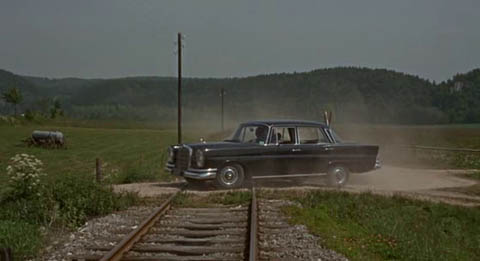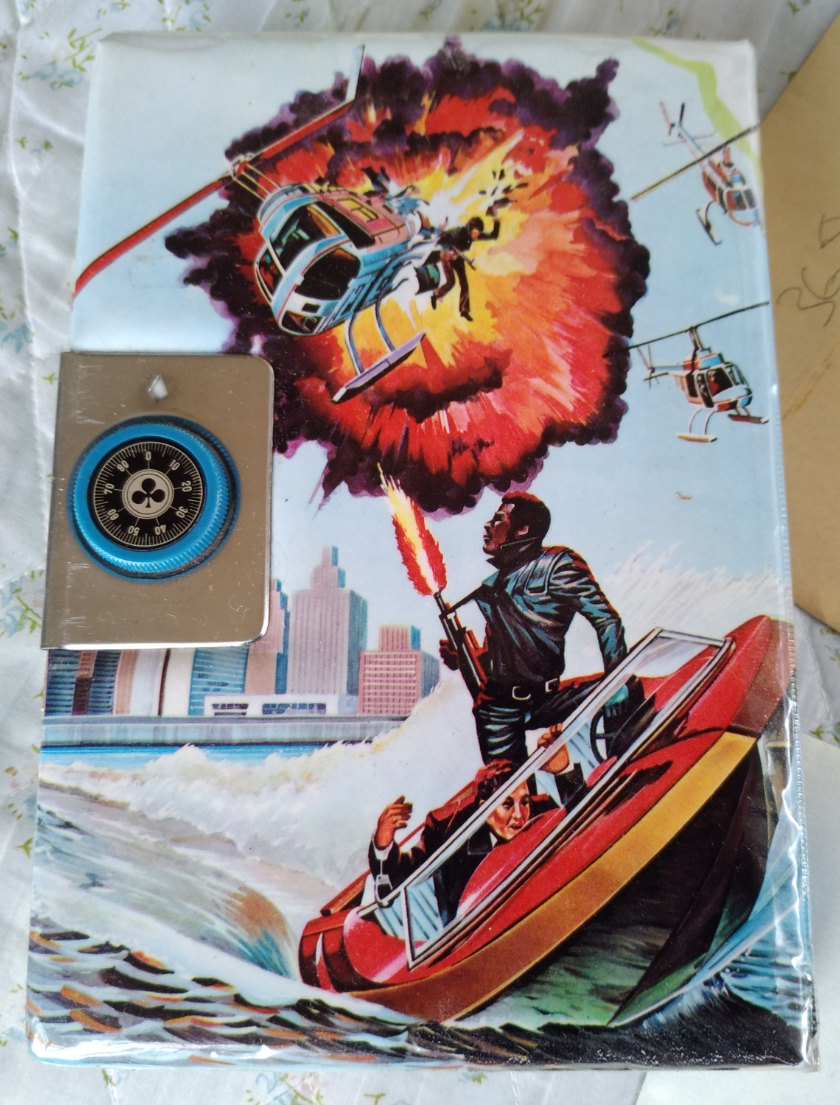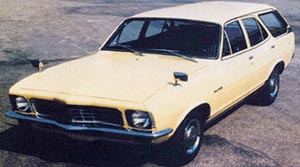I read a blog post tonight on my friend Jen’s Tumblr, about a memory that goes back to when she was about three or so. But she wondered if it was accurate.
I believe it was, because for me, by age three I had over two years’ worth of memories. I have met two people in my life who can remember back, clearly, in a temporal, linear fashion, to before we were one. When we discuss this, our first comment to the other usually is, ‘No one believes you, do they?’
Many doubt us, saying, ‘You must have heard that from your parents,’ or ‘You must have seen this in a photograph,’ until we start telling the stories.
I wrote on Jen’s blog:
I have a few vague memories similar to this prior to nine months, and they are dream-like, almost like flashes. I assume the human mind does not string events together in a temporal fashion at earlier ages, so we recall them as unclear glimpses rather than moments that are anchored to past and future events on either side.
I don’t know if studies have been done about this, about why those early memories are not stored. The above is only a theory, but I have a hunch it is right. We are not taught the concepts of past and future as babies, so we don’t store anything in a linear fashion. Why I began to earlier than most, I do not know. No single event triggered it.
I usually tell people I began remembering when I was nine months old. That’s only a rough date, because at that age I had no concept of what a month was. The date does come from photographs, but that’s all I will give childhood photography. The rest is down to my own mind.
The story that usually convinces people in regular conversation is this one: learning to walk. It was not my first memory—that was one of those “flashes” that I alluded to in the quote—nor was it the first one that I can trace right back. But I think most people will agree that getting on to your two feet should be quite a memorable event.
I was a late walker and a happy shuffler. If we put the average baby learning to walk at around age one, then I was still shuffling at 15 months.
My friend Tim, who remains in contact with me to this day, is younger than me by just over three months. His family came over to visit and he had just started walking. I believe I retold this to him when we were in our late 20s. Sadly, he does not remember it and cannot corroborate the events.
I had already put up with encouragement to walk for ages (again, at this point, I had no concept of ‘months’, but it must have been) so, naturally, there was a lot of ‘Oh, look at Tim, he’s walking! Isn’t he a good boy?’
My thought, because at this point I had attempted to walk (and fall) numerous times was: ‘This is peer pressure. I’m not doing it. Look, I can get across the room shuffling more quickly than he can walk. It’s safer, and it’s a known quantity. Just because everyone else is doesn’t mean I should, and so what if I don’t?’
I should note that the thought was not structured as language, but as impulses, which, really, is the way most of us think. It’s only in recounting the event that we stretch it into comprehensible sentences. I also did not say this; if I did, it probably was as infantile babbles.
And I could get across that room more quickly. Shuffling 1, walking 0.
If you think back to when you were five or six, or whenever it was when you first began your set of memories, you might remember that inner voice of yours. It’s your own Jiminy Cricket. It’s not a weird voice telling you to do evil stuff, but your thought process. You know, the one talking to you right now as you read this. And I’m willing to bet that that voice has remained identical all these years in your own mind.
For the fellas, that means that when your voice broke, it didn’t suddenly change. It’s as though it was the same all along.
And that’s the voice I had at 15 months.
It means that even at age one, I was a stubborn so-and-so.
I should also mention that I was on “the leash” (which demeans us both). And from personal experience of being the leashed, it is bloody painful on your armpits when you get dragged up. It’s only natural for your parents to not want you to hurt yourself and they jerk you up. But by 12–15 months, you’re used to the pain of falling and you know how bad it is. In fact, the pain of falling was preferable to the pain of being yanked up. (In the 1990s, I went to Plunket to tell them of my experiences, and begged them to never recommend the leash to parents.)
The leash might well have made me more rebellious than I normally would be, but eventually, as anyone who knows me today, I eventually learned to walk. I was about 16 at the time and wanted to pull chicks. Only kidding.
Soon after (again, I cannot give you an exact time-frame), I discovered that I could run. Fast walking. And I loved it. (Driving on the autobahn gives the same thrill.)
I then remembered thinking, ‘If someone had told me that I could run after I learned to walk, I would have done this ages ago [or, at least, in the past]. Why didn’t someone tell me?’
Even at a time when we are not supposed to understand language as it is constructed, I am convinced infants actually understand any language as impulses, probably picking up vibes. They can reason, and it means that parents should be clear in explaining everything to their children, even at a very young age that they cannot remember back to.
But it shows me that at around 12–18 months, I had a clear idea of ‘the past’ being the time when I was being encouraged to walk.
The memories may well have been triggered by another phenomenon: the need to begin schooling at age two, as was common in Hong Kong.
We are expected to attend kindergarten from 2½, and it’s not what occidentals associate with that term.
We are talking nightly homework and getting graded. Sucks, I know. You don’t get much of a childhood, though there were really cool tricycles there.
The idea is that if you don’t get into a good kindy, you don’t get into a good primary school, which means you don’t get into a good college, which means you don’t get into a good university. Therefore, in Hong Kong, in the 1970s, it was important to get the right start in life.
However, to get into a good kindergarten, you have to sit an exam. Solo. With the examiner in the room in front of you.
This would have been around two, and in the period before, while you are still one, you notice your parents buy join-the-dots puzzle books (I could count by this stage, thanks to my grandmother) and books with the alphabet.
This was not exercising my mind: this was serious swotting.
Because of the kidnapping of infants by Red Chinese back in those days, we also have the ‘Don’t talk to strangers’ message drummed in to us. By this point, my parents and grandmother were rationalizing with me, adding, ‘Because if you do, you might not see us again.’
You can imagine that being abandoned by your mother with the examiner in a room is a pretty traumatic experience, because it goes against the whole anti-stranger thing.
It didn’t make it easier that the bloody exam was not alphabet recitation or joining the dots.
Maybe this is why, to this day, I still have nightmares about not having studied for an exam, though usually it’s set at law school, and it’s often constitutional law. (Thank you, Prof Palmer. Ironically, I did quite well with Sir Geoffrey’s exam.)
The exam was putting shapes in to holes: the one Frank Spencer had to do when he joined the RAF.
I eventually did it, crying through the process, but I guess at the end of the day, it was about the result and not the means. And I could see my Mum again.
So by age two, most kids in Hong Kong had to rely on some form of memory, and when I was younger, I usually credited that with why mine went so far back. However, I wonder if others from the same place can report the same.
Or, for instance, can actress Alicia Witt recall that she recited Shakespeare on That’s Incredible at age four? Considering her profession today—musician and actress—she must be blessed with a good memory, one that she’s had to exercise for a longer time than most.
Emigrating to New Zealand in 1976 might have triggered a new set, because of the then-unfamiliar surroundings.
I have a photographic memory, and I can tell you that the first car that went on the other side of the road as we left Wellington Airport on September 16, 1976, three days shy of my fourth birthday, was a Holden.
There were few Holdens in Hong Kong but I remember the shape of the station wagon and finding out the brand later.
It’s a little obsession I have always had, long before I even came to New Zealand.
If anyone who worked at the Fiat dealership on the corner of Victory Avenue, Homantin, Kowloon, in 1975–6 remembers a two- to three-year-old who could tell them which was the 124, the 127, the 128 and the X1/9, and what years they were registered, then that was me. I still regret missing the launch of the 131, which was scheduled to take place in late September–early October 1976, but the cars were in the showroom, covered up.
The dealership is no longer there, nor is the kindergarten, otherwise I would be asking Fiat Hong Kong for photographs of the launch event. It must have been the first launch to which I could have gone to, and had to miss.
Above The corner of Victory Avenue and Waterloo Road. At the far right, cut off, is where the Fiat dealership would have been. The laundry was there in the 1970s.








Those who know me intimately believe me when I say I remember details about my first few days of mortality. (How interesting it was when scientists declared that babies have fuzzy vision to start… they’re right, from my experience.) I have a fairly uncanny long-term memory, although most of the time, I don’t trust it. But then… I lack trust on a lot of things.
I believe you, too, Jak: if it’s possible for me to go to a few months of age, then I certainly believe someone who says he can go back to a few days. Incredible that you remember and can confirm the fuzzy vision.